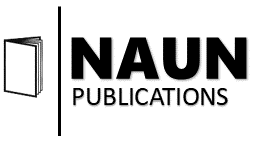Tertiary level English Language Teachers' Use of, and Attitudes to Alternative and Online Assessments during the Covid-19 Outbreak
Author: Saud Mohammed Alenezi
Abstract: This study aims to investigate the English language teachers’ perceptions and attitudes towards the use of alternative and online assessments adopted during the Coronavirus (Covid-19) outbreak, in Saudi Arabia. The current study employs a descriptive method, and the data were collected using a survey questionnaire, which consists of 33 closed-ended and four open-ended questions. The participants were 102 (46 male and 56 female) teachers of English at Northern Border University, Saudi Arabia. The questionnaires were administered online via Google Form. The data were analyzed using descriptive statistics for quantitative responses, whereas content analysis was used to analyze the qualitative responses collected from the open-ended questions. The findings revealed that the teachers had mixed reactions towards alternative and online assessments. The online assessments adopted were in form of both alternative and traditional types, administered via Blackboard. It was found that portfolios and oral presentations were the most frequently used forms of alternative assessments by the English language teachers at the time of Covid-19. Other types of alternative assessments, including, online collaborative/peer assessment, self-assessment, virtual concept map, concept map, article review, and mini-project, were claimed to be less used by the teachers. However, the teachers’ top priority was summative assessment, where by the traditional exams were in fact still be used in online assessment. In addition, teachers reported constraints related to time for the assessments, need for computer literacy, possibility of cheating, and technical issues, when adopting online assessments. However, they believed online assessment covered the content of the course of study. Teachers also reported that students did not initially like online assessment but later warmed to it as it proved easier to do well in. Finally, pedagogical implications are discussed based on the study findings.
Pages: 39-49
DOI: 10.46300/9109.2022.16.4
International Journal of Education and Information Technologies, E-ISSN: 2074-1316, Volume 16, 2022, Art. #4
PDF DOI XML
Certification
